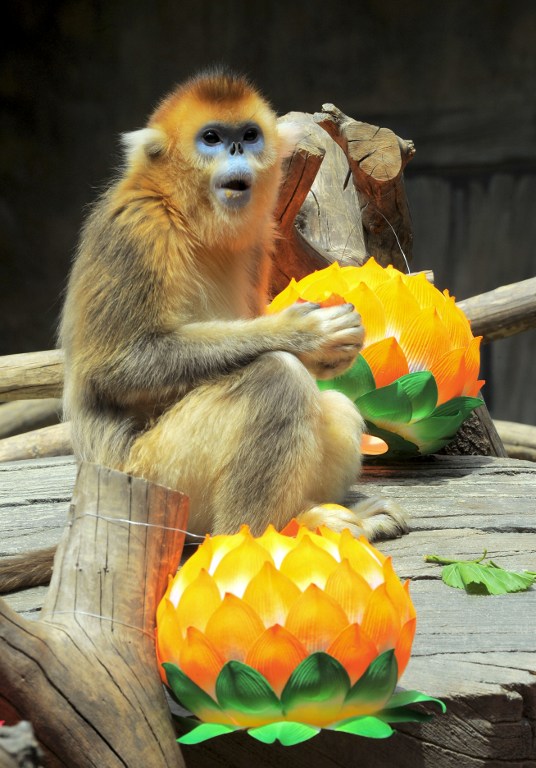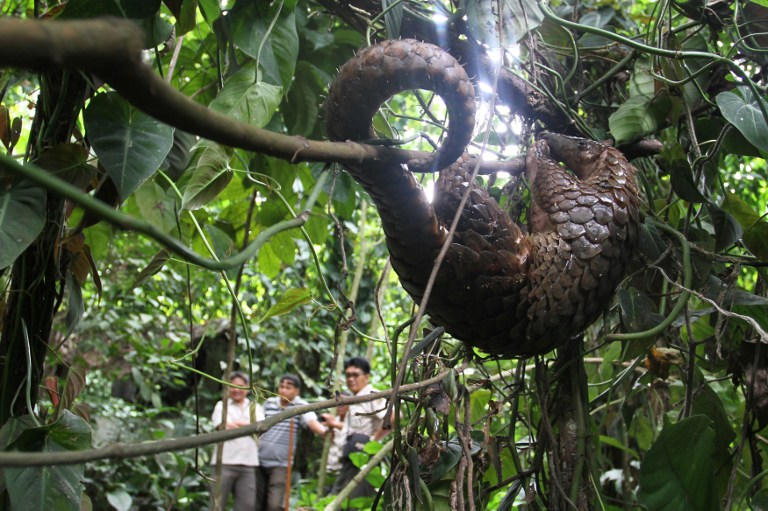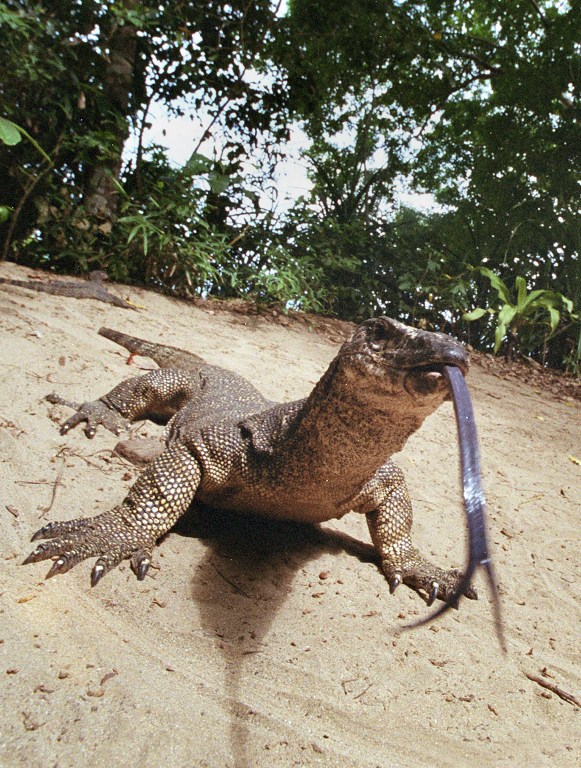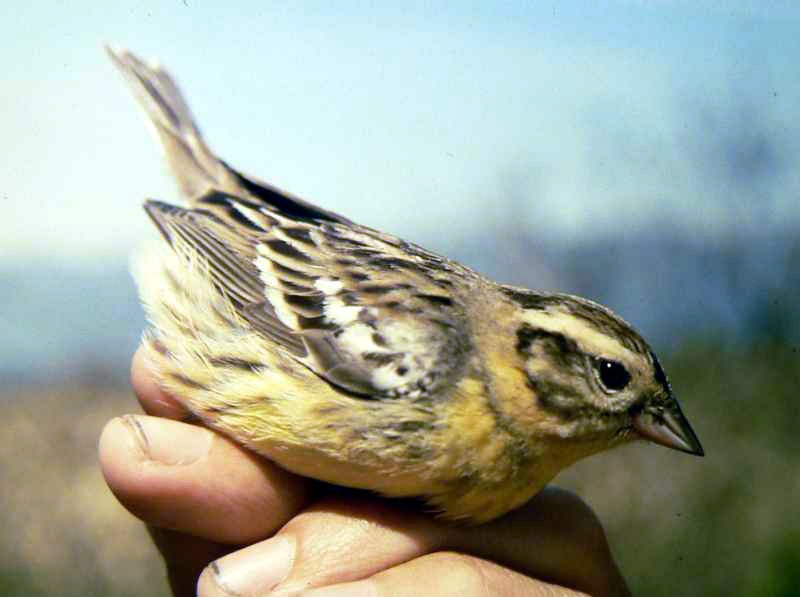Why exactly the government has decided to target a practice that has gone on for centuries isn’t clear. Rare animals have long been part of traditional Chinese cuisine and medicine. But increased demand from China—the world’s single largest importer of rare animals—over the past few years has led to more poaching around the world and prompted a wave of criticism outside of China. At home, too, a budding animal-rights movement is taking root.
Still, the ban may also be a way to crack down on luxury consumption among Chinese officials—a pet project of the current Chinese leader, Xi Jinping. Deluxe dishes of shark fin soup or giant Chinese salamander meat are served at high-end banquets and meals intended to either impress or show respect—often for an official.
Here are some of the animals that could be saved if taken off of menus.
The snub-nosed monkey

Snub-nosed or golden monkeys are native to China and live mostly along the mountainous southwestern region. Their fur is believed to ward off rheumatism, and monkey meat and brains are considered delicacies in some parts of southern China. (Romeo Gacad/AFP)
Pangolins

The world’s only fully scaly animal is facing extinction because of Chinese demand for pangolin fetus as well as blood and other body parts, thought to help treat asthma and cancer. Most pangolins sold in China have been hunted in Vietnam and Myanmar. Prepared pangolin can sell for as much as 1000 yuan ($160) a kilogram. (AFP)
The monitor lizard

All but five breeds of monitor lizard are listed under the Convention on International Trade in Endangered Species as at risk of becoming endangered. Its meat is considered an aphrodisiac in parts of China and elsewhere in Asia. According to China Dialogue, monitor lizards sell for about 200 yuan a kilogram. Like pangolins, most of China’s monitor lizards are from neighboring Vietnam and Myanmar. (Romeo Gacad/AFP)
The yellow-breasted bunting

Also referred to as “rice birds,” the yellow-breasted bunting is a popular food in southern China, where parts of the bird, often served in soup, are believed to boost virility and help flush out toxins from the body. According to China Dialogue, up to 100,000 yellow-breasted buntings are served in restaurants every day when the birds are in season. (Wikimedia Commons)
This post originally appeared on Qz.com.
Buy an annual Scroll Membership to support independent journalism and get special benefits.
Our journalism is for everyone. But you can get special privileges by buying an annual Scroll Membership. Sign up today!